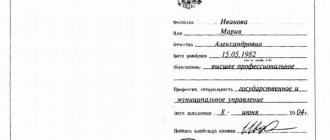Work is the place where a person spends a third of the day, and sometimes more. Therefore, it is very important to maintain a favorable psychological climate in the workplace. But, unfortunately, this is not always possible. Even in the most friendly team, disputes and disagreements arise. And if internal problems are resolved relatively simply, then disputes between an employee and an employer can lead to negative consequences for both parties. In such a situation, the most important thing for each party is to react promptly and correctly. How to take into account all interests and find the right solution to a labor dispute?
Grounds and causes of labor disputes
A conflict between an employer and an employee can break out in any area of labor relations. Most often, disputes are related to:
- unlawful refusal of employment and unlawful dismissal;
- failure by the employer to comply with labor protection conditions and rules;
- social guarantees for employees;
- non-payment of wages.
A labor dispute is a disagreement that has arisen between an employer and an employee.
Among the most common causes of labor conflicts are:
- legal illiteracy of management;
- ignoring the legal rights of employees;
- poor working conditions;
- lack of a clear distribution of responsibilities among members of the workforce;
- mismatch between the employee’s qualifications and the position held;
- difficult psychological climate in the team;
- incorrect leadership style;
- employee ignorance of their legal rights and obligations.
Non-payment of wages and illegal dismissal are the most common causes of labor disputes.
Methods of reconciliation
Conciliation procedures include consideration of a collective labor dispute (abbreviated as CLC):
- Conciliation Commission (this stage is mandatory for the parties to the CCC) - Labor Code, Art. 402.
- Involved independent intermediary - Labor Code, Art. 403;
- Formed by labor arbitration - Labor Code, Art. 404.
The “disputants” proceed to the last two procedures if the work of the commission does not lead to a resolution of the dispute. Then a protocol of disagreements is drawn up, where it is recorded that the parties failed to reconcile. And it is proposed to use other mechanisms to resolve the dispute, inviting either a mediator or independent labor arbitrators.
Read also: Consideration of labor disputes in the CCC
Types of labor disputes
The Labor Code of the Russian Federation distinguishes 2 types of labor disputes - individual and collective.
Individual labor disputes
They are described in Art. 381 of the Labor Code of the Russian Federation and imply disagreements arising between the employer and an individual employee. This could be a dispute regarding transfer to another position, dismissal or disciplinary punishment.
Collective labor disputes
They are mentioned in Art. 398 of the Labor Code of the Russian Federation and arise between the trade union (or work collective) and the employer.
The reasons for collective labor disputes are varied - disagreements over working conditions, implementation or amendment of collective agreements, etc.
Procedure for resolving individual disputes
There are several ways to protect individual labor interests.
- Contacting the trade union.
- Contacting the labor dispute commission or labor inspectorate.
- Filing a claim with a judicial authority.
It is necessary to remember: the legislation (including the Labor Code of the Russian Federation) has a very large number of nuances and pitfalls. For this reason, we recommend that you first contact professionals whose main activity is legal consulting on the application of corporate and labor law.
Procedure for consideration of labor disputes
It differs depending on the type of dispute. Therefore, we will consider separately the procedure for considering individual and collective labor disputes.
If the labor dispute is individual
There are three ways to consider an individual labor dispute:
- In general order
The conflict is considered by a special commission on labor disputes, consisting of representatives of the employer and members of the trade union. The decision must be made unanimously.
If the employee does not agree with the verdict, he has the right to go to court. The main thing is not to miss the application deadline. You can file a complaint with the labor commission within 3 months from the date of violation of your rights.
Follow the deadlines, otherwise your complaint will not be considered.
- Through the court
Some labor disputes can only be resolved in court. These include:
- reinstatement at work after illegal dismissal;
- unlawful refusal to hire;
- changing the date and reason for dismissal;
- challenging a transfer to another position;
- disagreements regarding the amount of salary;
- payment for forced absence;
- disclosure by the employer of the employee’s personal data;
- recovery of the amount of property damage in favor of the employer;
- discrimination (racial, gender, etc.);
- employer - an individual or religious organization.
The court decision is executed when it comes into force, and in the case of reinstatement to the previous place of work or payment of wages - immediately.
Some types of labor disputes can only be resolved through court.
- In a special order
This is how disputes of certain categories of employees are considered by their higher authorities. When making decisions, they are guided by the law and the organization’s charter.
If the labor dispute is collective
Collective labor disputes are considered by a conciliation commission with the participation of a mediator, or in labor arbitration.
The order of consideration is as follows:
- Consideration of the case by the conciliation commission
First of all, employees need to send their written complaints to the director. Within 3 days, he is obliged to form a conciliation commission, consisting in equal shares of representatives of the parties.
The decision made by the commission is documented in a special protocol. It is obligatory for execution within the specified time frame for all participants.
- Involvement of an intermediary
If the conciliation commission is unable to resolve the dispute, a mediator is invited. His candidacy is approved by agreement of the parties.
The conflict is considered within 7 working days from the date of invitation of the mediator. The procedure ends either by making a decision or by drawing up a protocol of disagreements (if it was not possible to reach a compromise).
- Going to court
If the parties to the labor conflict were unable to resolve the dispute in a conciliation commission or with the help of a mediator, it is time to turn to labor arbitration.
The lists of arbitrators are formed from the participants of the parties to the collective agreement. This is done by the state body responsible for resolving collective labor disputes.
Specialists (lawyers or economists) may be involved in the consideration of the case. The dispute is considered within 5 days from the moment of creation of the labor arbitration. The decision made is binding.
Conciliation procedures did not produce the desired effect - workers have the right to go on strike.
Customer Reviews
Thanks to A.I. Ivanov I would like to express my gratitude to the team of the “Legal Agency of St. Petersburg”, and especially to Artem Igorevich Ivanov, for the competent actions and decision in my civil case. I dare say that this is one of the best law firms in the city, because... I became very close to the lawyers. Everything is done in a timely manner and to the point. Good luck to the team in everything.
Sincerely, Nadezhdin A.N. June 7, 2018
Gratitude from Komardin I ask you to express my gratitude to lawyer Alexander Viktorovich, who competently and clearly explained to me my further actions to solve the problem that my relatives found themselves in.
02/11/18 Komardin S.I.
Gratitude from Ivanov I express my gratitude to Vasily Anatolyevich for the correct and competent legal assistance in solving my case. I wish you and your entire company prosperity and success.
With all my heart, V.V. Ivanov. 05/10/2018
Thanks to Stepanov D.Yu. from Shcherbakova T.I. I would like to express my deep gratitude to Denis Yuryevich Stepanov for the very competent, highly qualified handling of my difficult case of terminating a contractual agreement with a problematic developer, who repeatedly postponed the completion of construction and completely ignored our claims (from other legal companies). The claim and complaints of Denis Yuryevich put everything in its place quickly enough, saving us from the threat of penalties from the developer, who unlawfully included them in the contract. Good luck to you in defending our legitimate interests! Thank you!
Sincerely, Shcherbakova T.I. 04.12.2017
Review by B.I. Goreky Gratitude to Yuri Vladimirovich from B.I. Goreky for the consultation on family rights.
Gratitude from Natalya Gurova I would like to express my gratitude for the qualified and friendly advice from legal practitioner Daria Igorevna Zaprudnaya, Vasily Anatolyevich Kavalyauskas and Daria Valentinovna Kutuzova. The environment at the law firm is welcoming and professional. I wish you continued prosperity. Thank you for your help.
Best regards, Natalia Gurova. 07/06/2018
Review by G.N. Antropova To the lawyer of the Legal Agency of St. Petersburg A.V. Ermakov
I express my gratitude to you for your professionalism in protecting my interests in a criminal case, Andrey Valerievich, allow me to express my gratitude to you for your help and support. I note your high professionalism and skillful actions in defending my positions.
Best regards, G.N. Antropov
Customer Feedback We thank the employees of Legal Agency of St. Petersburg LLC and, first of all, Yana Maksimovna Matveeva and Andrey Valerievich Ermakov for their highly qualified and thorough consideration of our issue and the prompt solution to our housing problem.
Also to Daria Valentivna Kutuzov for her attentive and friendly attitude towards visitors.
Thanks from Radhuan M.R. Dear Kavaliauskas Vasily Anatolievich. Let me express my sincere gratitude for the qualified legal assistance provided. Thanks to your professionalism, I was able to achieve a decision in my favor. I wish you further prosperity and professionalism.
Radhuan M.R. 06/08/2018
Review by Irina D. I thank the Legal Agency of St. Petersburg for the warm, sincere welcome and the detailed, competent, thorough, conscientious legal position of lawyer Andrei Valerievich.
Limitation periods for labor disputes
Art. 392 of the Labor Code of the Russian Federation establishes the following limitation periods:
- 1 month - if the dismissed person wants to challenge the reason or the very fact of termination of the employment relationship. The countdown begins from the date of receipt of a copy of the dismissal order or work record book.
- 3 months - for all other types of labor conflicts. The period begins to count from the moment when you learned or should have learned about the violation of your rights.
- 12 months - on issues of non-payment of wages.
Even if you missed the statute of limitations, you can still file a lawsuit. This issue will only be raised if the respondent (your employer) requests it. Then you will have to prove that there are good reasons for the delay.
Missing the statute of limitations does not cancel the right to go to court.
How are disputes resolved by the labor commission?
To resolve a conflict issue in the CCC, you need to prepare a written appeal there, indicating in the document the name of the body, the essence of the conflict that has arisen, your vision of the event and a request to the commission to sort out the dispute.
Application to the labor dispute commission (sample)
After the commission has familiarized itself with the employee’s received and registered appeal, it must consider the conflict that has arisen. A ten-day period is allotted for consideration of the complaint. For the employee himself, the time to submit an application is limited to three months from the moment his rights were violated.
The conflict is considered at a commission meeting with the obligatory presence of the injured employee or his legal representative. If he does not appear for this meeting, it will be postponed to the next day. In case of repeated absence, the commission will have the legal right to withdraw the issue from consideration. Witnesses and interested specialists invited to testify may be present at the commission meeting. The progress of the meeting must be recorded. The protocol indicates the names of all present members of the commission, who are required to certify it after registration with their signatures. The drawn up protocol must be sealed by the CTS.
Expert commentary
Gorchakov Vladimir
Lawyer
In order for the decision made by the CCC to have legal significance, at least half of the commission’s representatives on the employee’s side and a similar number of members on the employer’s side must participate in the consideration of the dispute. It is not necessary for each side to have the same number of members present at the meeting. The main requirement is compliance with the requirement for the presence of a majority of commission members from each party.
The general decision must be made by secret ballot, and its result must be documented. The commission's documented decision is handed over to both parties to the conflict within three days. They can appeal the decision within ten days from the date of delivery. If there is no protest within the specified period, the decision is subject to execution after the end of 10 days. 3 days are allotted for this.
Time limits for consideration of labor disputes by the court
The law establishes the following deadlines:
- for conflicts about reinstatement - 1 month;
- for all other types of labor disputes - 2 months.
If the judge considers your case complex, he may extend the time limit for its consideration.
As practice shows, the period of consideration of labor disputes can drag on for several years. Therefore, if situations arise related to the violation of your rights at work, it is better to immediately seek help from an experienced lawyer.
Who can go to court?
Individual disputes occurring between an employee and an employer can be considered in court if the parties are not satisfied with the decision of the CCC. You can also go to court without going through the stage of consideration of the conflict in the CCC, since the law does not require mandatory pre-trial consideration of labor conflicts in the commission. An employee usually applies to a judicial authority with a statement regarding labor relations.
A former employee whose employment relationship was terminated due to his dismissal may also file a claim. An employee's reinstatement at work occurs only by court decision. In court, issues are being resolved not only about establishing the legality of his dismissal, but also about changing the very wording by which this dismissal occurred, since these issues are directly related.
Important! An employee, when filing a claim with a judicial authority regarding violations of his labor rights, is exempt, in accordance with Article 393 of the Labor Code of the Russian Federation, from paying state duty.
Article 393 of the Labor Code of the Russian Federation - Exemption of employees from legal costs
When filing a claim in court for claims arising from labor relations, including regarding non-fulfillment or improper fulfillment of the terms of the employment contract, which are of a civil nature, employees are exempt from paying fees and legal costs.
If the decision of the CCC was illegal, then representatives of the enterprise’s trade union, as well as employees of the prosecutor’s office, can go to court.
In all of these cases, the employee is the plaintiff for the court, and the employer is the defendant. The employer has only one reason for which he can file an application in court and be a plaintiff. This reason is compensation for material damage caused to the enterprise by the employee.
Statement of claim for recovery of wages and compensation (sample)







